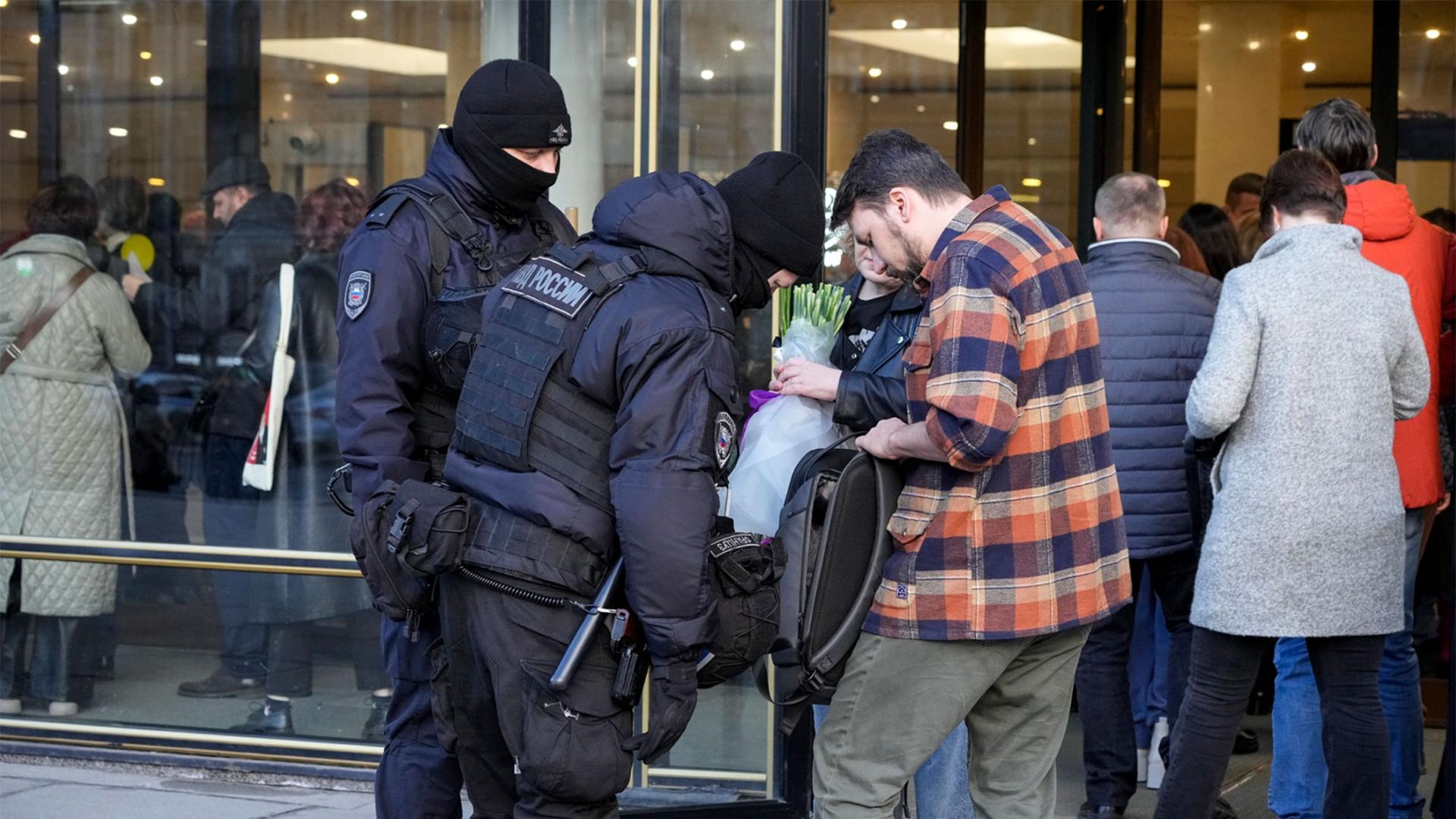Nearly two weeks after the March 22 mass shooting at the Crocus City Hall concert venue in Moscow, the investigation into the attack is ongoing.
This week, Russian President Vladimir Putin spoke about the investigation during a speech at the Russian Ministry of Internal Affairs.
“We will track down those who ordered these attacks,” he said.
Russian police have detained four suspected shooters as well as other men allegedly involved in the attack. The suspects are all from Tajikistan. And now, there are reports in cities across Russia that people from Central Asia are experiencing a rise in harassment, mistreatment and xenophobic behavior.
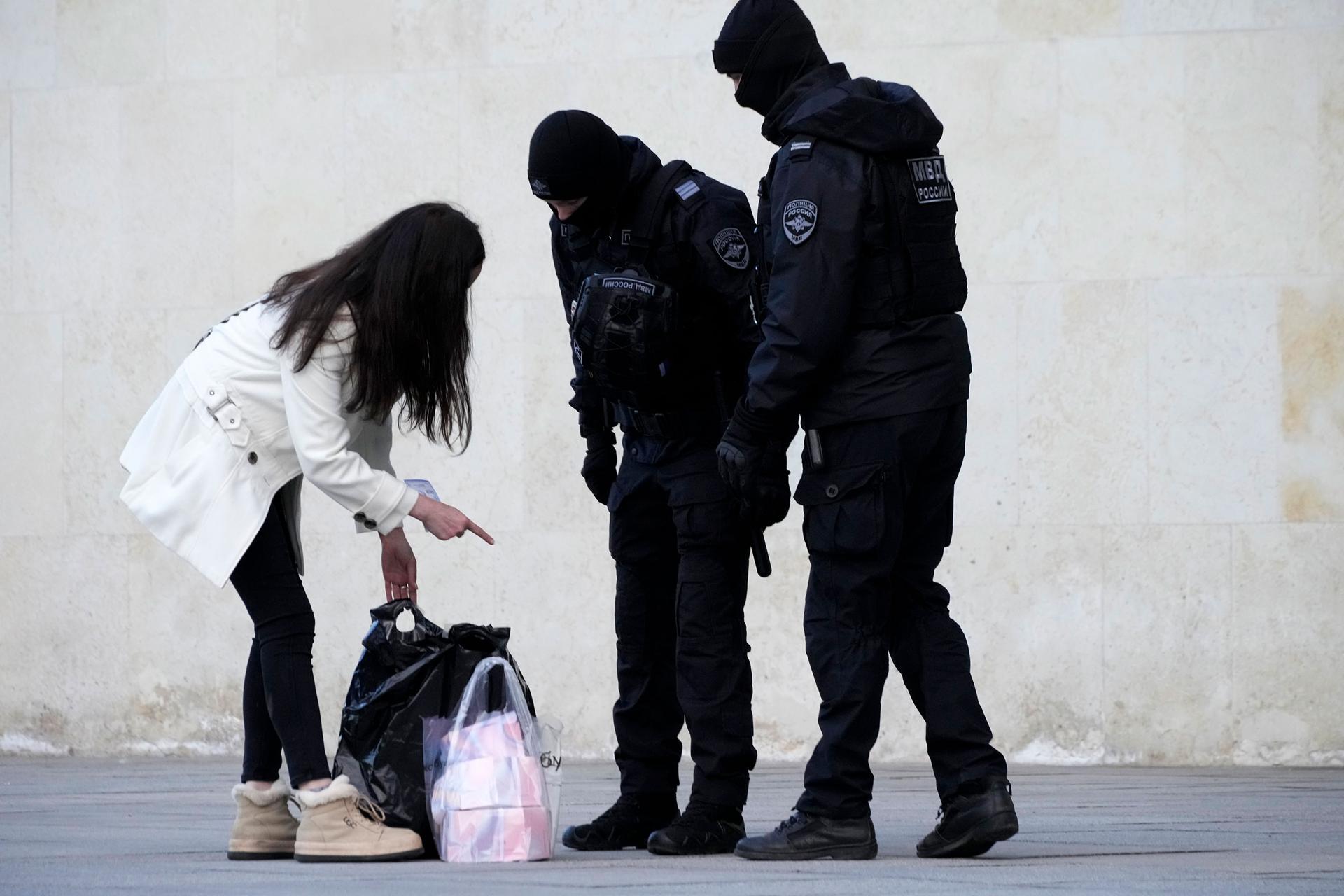
“The discrimination of Central Asian migrants has been there for quite a long time.”
“The discrimination of Central Asian migrants has been there for quite a long time,” said Bektour Iskender, a Warsaw-based journalist who is originally from the Central Asian Republic of Kyrgyzstan.
He said that over the years, he’s felt uncomfortable spending time in Russia.
“It’s always been quite scary to me, to be honest, to travel to Moscow, and I really didn’t wish to do that. And I guess it comes mostly from my childhood, because within my family in Kyrgyzstan there’s always been this fear of being attacked based on the way we looked,” he said.
Those fears are, in part, based on first hand experience. He described traveling to Moscow and being extensively questioned and searched at the airport.
“What amazed me back then was how, I guess, we were racially profiled, because I didn’t see any Russian person being searched like that — it was only Central Asians,” he said.
Iskender said police check IDs in the streets, or at metro stations, and it would almost always be Central Asians, or other minorities.
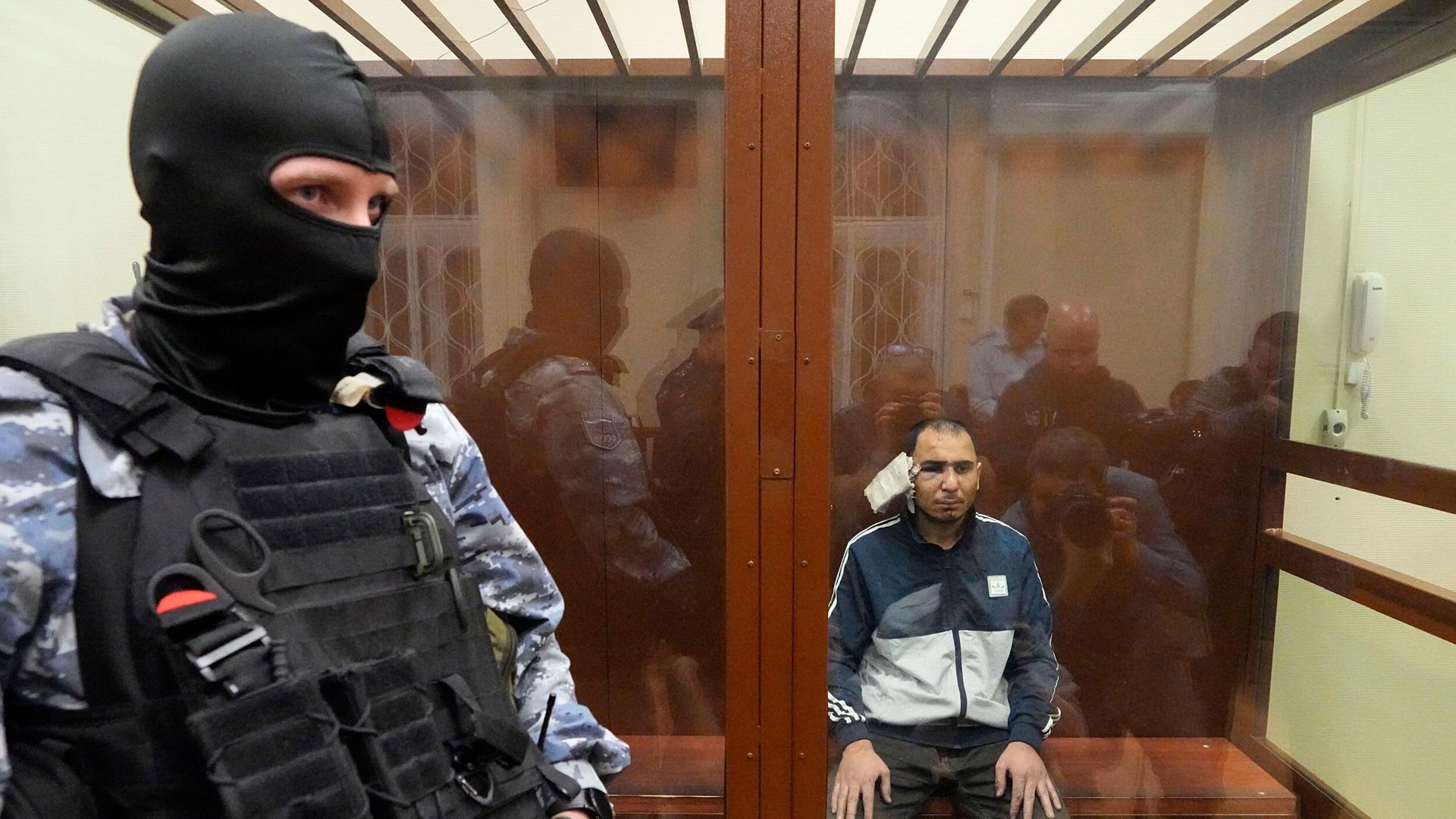
Xenophobia directed at Central Asians has a long history in Russia.
Central Asian republics are also majority Muslim. Far-right Russian nationalists spread xenophobic messages based on religion, ethnicity and language differences. Yet, people from Central Asia have often come to Russia as migrant workers.
“Moscow, of course, was the capital of the whole empire, and the whole Soviet Union, so there was this aspiration to be successful enough to move to Moscow,” Iskender said.
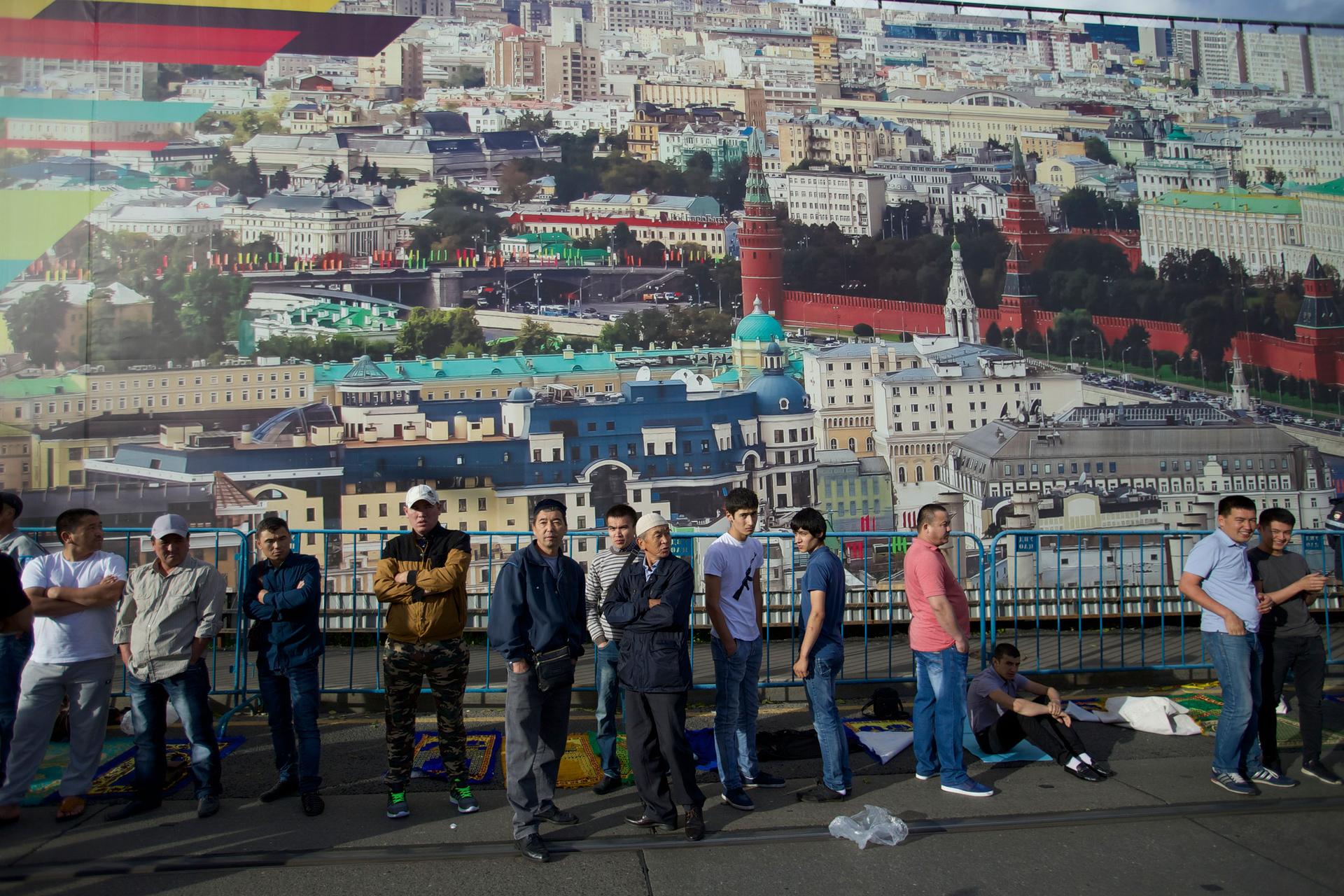
That legacy of moving to Russia to make a living has carried over to today.
According to Russia’s Interior Ministry, more than 10 million migrants from Uzbekistan, Tajikistan and Kyrgyzstan are working in Russia.
One of the reasons for the high number of migrants is because of visa-free travel between some of these Central Asian countries and Russia.
“Traditionally, the destination for jobs was Russia, and for many it actually helped to provide for their families, especially considering that, back at home, employment is an issue, especially in Tajikistan, there’s a high rate of unemployment,” said Leila Seiitbek, a lawyer from Kyrgyzstan who also serves as chairwoman of the Vienna-based nonprofit Freedom for Eurasia.
But now, following the shooting on March 22, and the arrest of men from Tajikistan, migrants are questioning how safe they are in Russia.
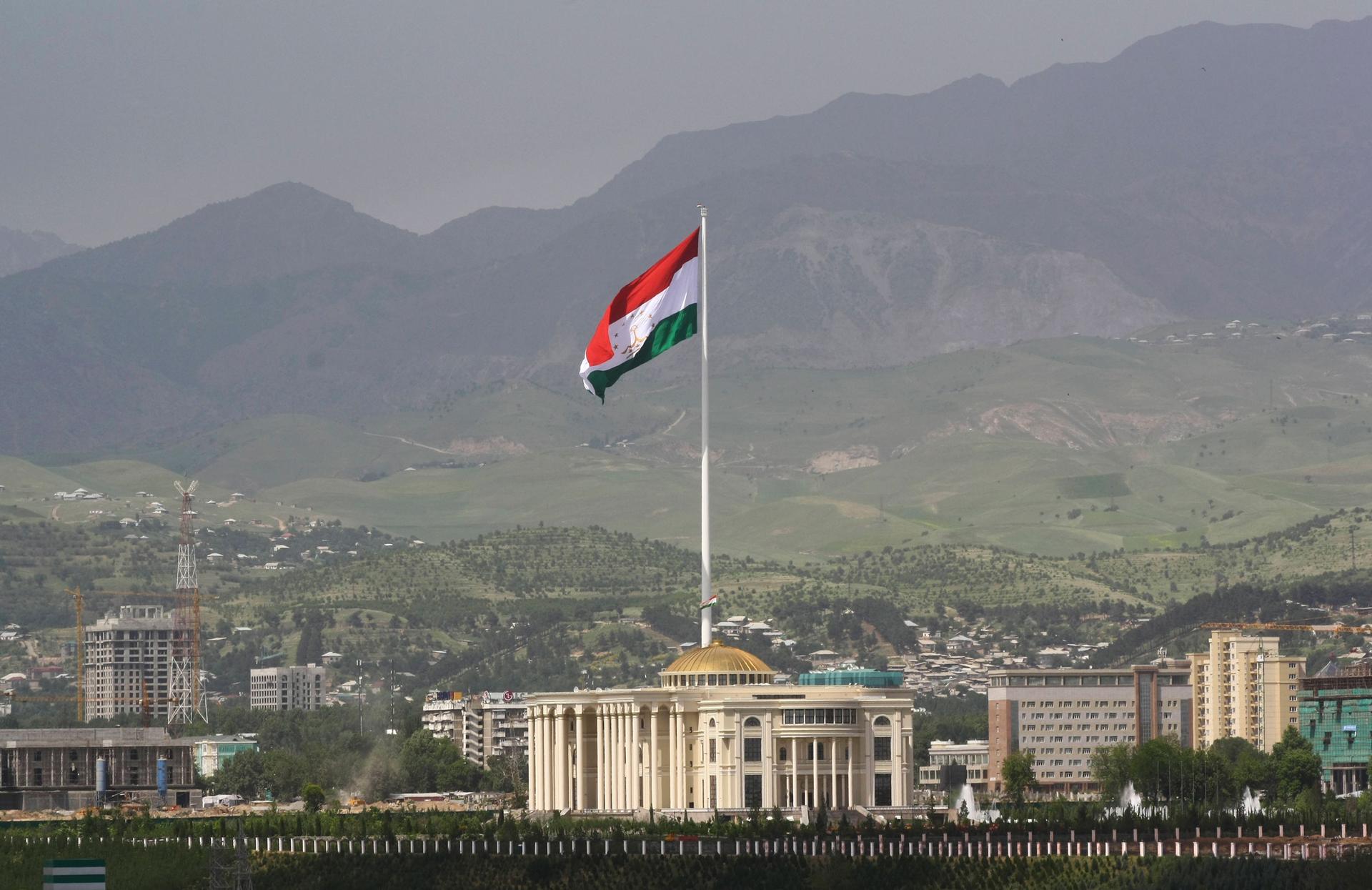
In one video posted on social media, for instance, a Russian police officer questions a man from Tajikistan who is having lunch at a restaurant in Volgograd, in southern Russia. Russian police have also conducted more raids on businesses and homes of Central Asian migrants.
“There is this intensification of migration control,” said Malika Bahovadinova, a researcher of Eurasian migration at the University of Amsterdam. “You do more raids, you do more checks, you identify more people, you stop all of the cars if you see that people in the car are phenotypically different.”
Bahovadinova said that the most visible change in the authorities’ behavior is that they are showing videos of the suspects being tortured.
“Of course, everyone who ever works in [the] human rights community perfectly knows that torture is used in law enforcement in the region quite widely; however, in this regard, the public display of this torture was very much new.”
The videos sent a chilling message.
“Once the images with torture started to come in, it also tapped into this decadeslong trauma of what kind of violence can happen to you — so it was quite intense,” she said.
Central Asians living in Russia are sharing information, and warning each other to be careful.
“People take back roads in order to avoid traffic police, you don’t take trains in Russia, you prefer driving cars. When something like this happens you don’t go outside.”
Bahovadinova said there are fears that the treatment of Central Asians in Russia will further deteriorate.
Last week, Kyrgyzstan’s government warned its citizens not travel to Russia.
